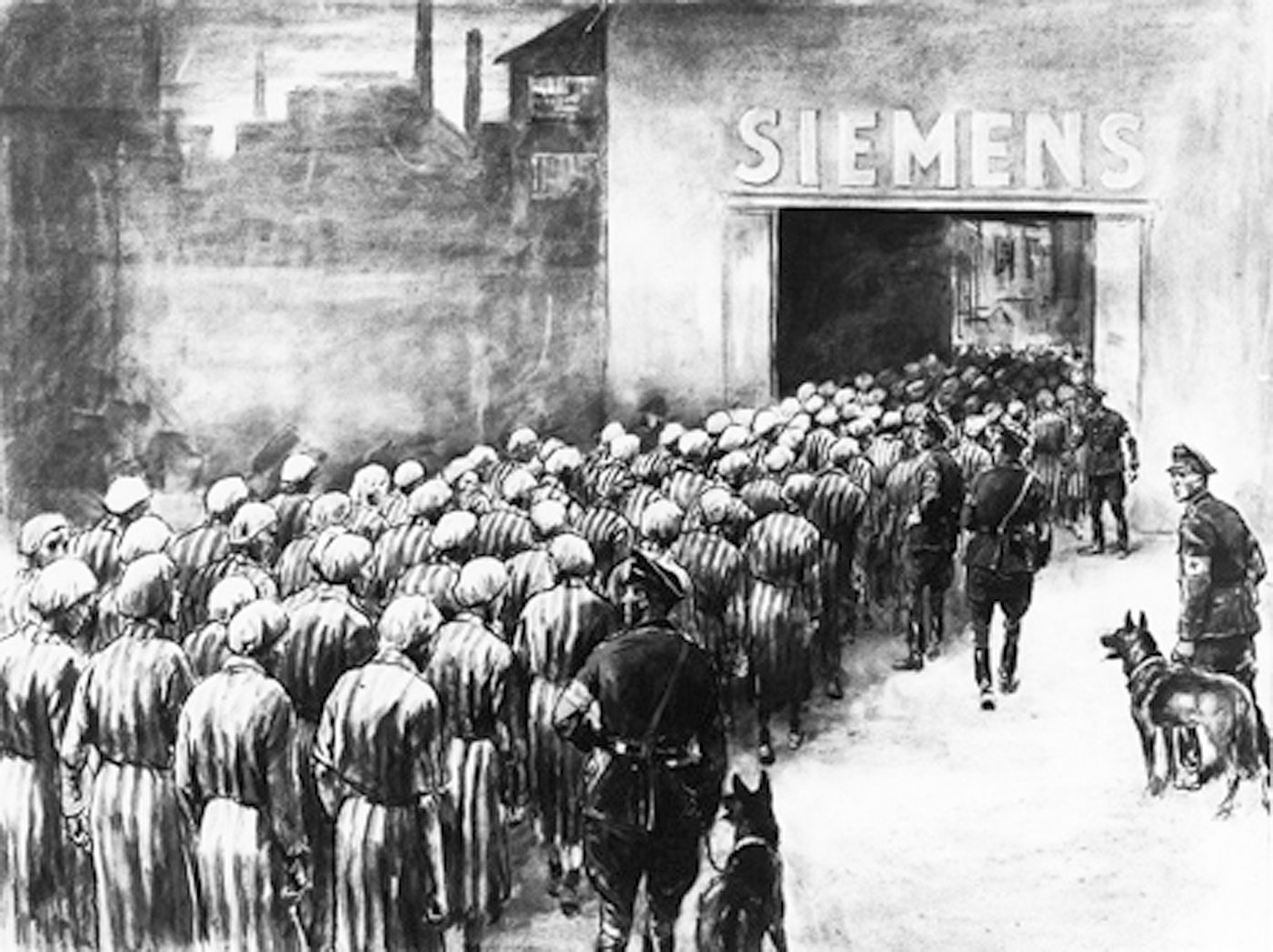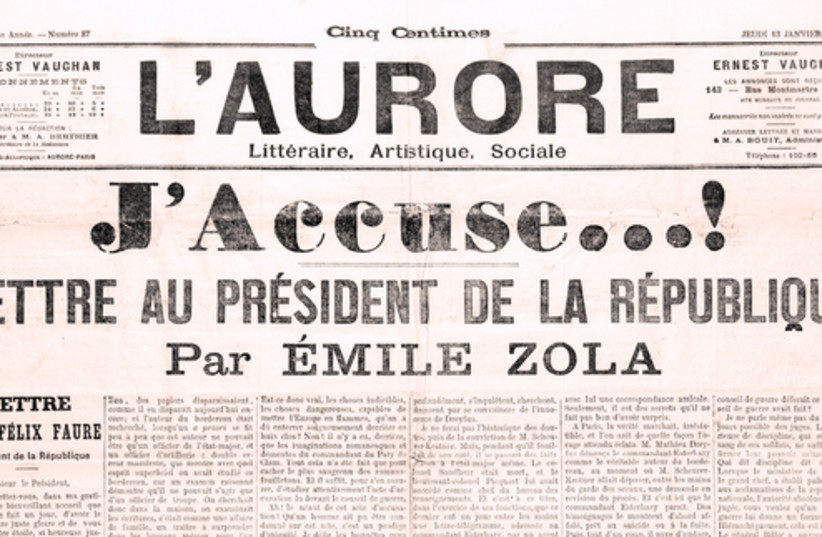Germany's Siemens Facing American Scrutiny for Agreeing To Boycott Israel
Germany-based conglomerate Siemens agreed to boycott Israeli products to secure a $360 million deal to provide Turkey with high-speed trains, according to copy of the contract obtained by a pro-Israel watchdog group that contradicts months of public denials from the company.
The agreement, which includes a signature and seal from Siemens, has a provision that "providers of goods and works, and their associates and subcontractors, shall be in strict compliance with the Boycott Regulations of the Organization of the Islamic Conference, the League of Arab States, and the Organization of the African Union." The Organization of the Islamic Conference enforces a boycott of Israel.
The news could raise legal issues for Siemens in the United States, where multiple states have instituted financial penalties for companies that participate in anti-Israel boycotts. The Zachor Legal Institute, the watchdog group that obtained a copy of the contract, said it has added Siemens to its list of scrutinized companies.
"Although modern-day Siemens has expressed regret for their use of forced labor during the Nazi regime, this new evidence of boycotting Israel indicates that this company is still willing to prioritize profits by engaging in economic warfare, this time against the Jewish State of Israel," said Ron Machol of the Zachor Legal Institute.
New York and Arizona officials told the Washington Free Beacon they are looking into the allegations to see if any action is necessary under the states' anti-boycott laws.
Siemens has for months denied a report by German media outlet Südwestrundfunk that the company signed on to the anti-Israel provision as part of the $360 million Turkish railway deal in 2018.
"Neither Siemens AG nor Siemens Turkey signed a boycott declaration in 2018 in connection with the tender for high-speed trains," said Florian Martini, a spokesman for Siemens, in February.
Siemens spokesman Wolfram Trost sent the Free Beacon an identical statement when asked this week about the contract. He declined to comment when asked if Siemens agreed to comply with the boycott regulations of the Organization of the Islamic Conference, as stated in the contract.
The Zachor Legal Institute said it has raised the matter with several state law enforcement bodies. At least 36 states have laws or orders opposing the anti-Israel Boycott, Divestment, and Sanctions (BDS) movement. Some of these laws limit government-related business with companies that boycott Israel, such as public pension fund investments or contracting work.
Siemens defends slave labour (again)
— The Spectator (@spectator) January 3, 2022
✍️ Steerpikehttps://t.co/UY4casbZLv
From Coy to Goy
Speculation about the future aside, the broader point here is that anti-Semitism, even as it remains both officially and pretty widely denounced, is less likely to be a point of weakness on the right in 2024 than it is a weapon. One way it’s wielded, on top of those we’ve already seen, is to say that conservatives are ineffective—not supremacist—because of Jews and Jewish (“neoconservative”) influence. The same goes for Israel policy. The notion that American Jews control U.S. policy towards the state of Israel, as well as U.S. government institutions like the CIA and so forth, is, of course, nothing new, and familiar to observers of far-left and Islamist anti-Semitism. What is new—or, rather, old and new again—is the assertion that support for Israel is foreign to American conservatism and to American values at large. Their target is not just Israel itself, but, closer to home, its supporters on the right.Antisemitism in the halls of Albany: A legislative attack on Israel is being knocked down by a huge majority fighting back
Twitter has come up again and again in this essay. It’s no accident. The modern media ecosystem has not caused the spread of anti-Semitism in the American right, but it surely has accelerated it. It also means those attitudes are probably not getting put back in the barrel. In 2016, anti-Semitism on the right first emerged as a kind of issue by association—Spencer was found to have made some hot-mic anti-Semitic statements, and Bannon was allied with loosely anti-Semitic European parties. Today, the far-right benefits from a more mature internet media landscape in which they have almost unbridled freedom to say what they think. They can reach niche audiences online, benefit from anonymous donations via cryptocurrency, and owe no loyalty to mainstream social-media platforms, from which many of them have been banned already. Neither are they beholden to the influence of large donors or to established conservative institutions. This allows people to assert their own power and popularity outside the system and take hold from there. (This is no genius insight—Fuentes himself acknowledges this openly on his talk-show.)
In the dark corners of the internet, these figures are free to promote extreme and exhilarating conspiracy theories about Jewish power and influence over American public and political life. They are able to make outlandish statements that delight their audience, and they no longer have to make excuses about humor as they speak to their followers directly and semi-privately. At the same time, they can be visible to the mainstream when they choose to be. Though he’s banned from Twitter, Fuentes clips are reposted to millions of views by allies like female anti-feminist YouTuber JustPearlyThings (1.48 million subscribers), who excused his Holocaust denial after his appearance on her show caused an uproar.
And with their new identity, and their focus on isolationism, Christian symbolism, and conspiracy theories about imagined threats to their freedom of speech, the far right heightens tensions with and increases pressure on the mainstream right. Just as, back in the UK, the movement that brought Corbyn to power had the establishment Labor party in its sights, this generation of far-rights activists are dead set on bullying and influencing the rest of the conservative movement. Will they take over, as the Corbyn faction did? Right now, that seems unlikely. The United States doesn’t look to me like Britain in the Corbyn years. Living in America, one benefits from protections of religious freedom, freedom of speech, and a robust philo-Semitic culture. But the continued existence of those freedoms and that culture depends on a renewed devotion, a renewed strategy, and a renewed self-confidence among America’s mainstream conservatives, and its Jews.
Last month, while hundreds of rockets were raining down on innocent Israeli civilians, Assemblyman Zohran Mamdani and state Sen. Jabari Brisport introduced legislation in Albany attacking charitable Jewish organizations. Though the bill's sponsors claim it would prohibit nonprofit organizations from supporting Israeli settlement activity, the legislation is no more than a thinly veiled attack on the State of Israel.
Bills such as this must be stopped in their tracks wherever they are put forth. Speaker Carl Heastie said the bill is a "nonstarter" and Senate Majority Leader Andrea Stewart-Cousins quickly echoed the same position. Knowing the bill would be dead on arrival, the sole purpose of the proposed law was to attack the credibility of Jewish organizations supporting Israel. We applaud the dozens of lawmakers who have already signed on to a statement condemning the proposed law.
Jews of the diaspora look up to the miracle of Israel, admire its astonishing achievements and view it as their second home. We must make clear that New York will always stand up to Jew-hate in whatever form it takes. Our state and Israel have deep ties spanning generations that will never be cast aside.
Ronald Lauder is president of the World Jewish Congress. Dan Rosenthal is an assemblyman representing parts of Queens.















































